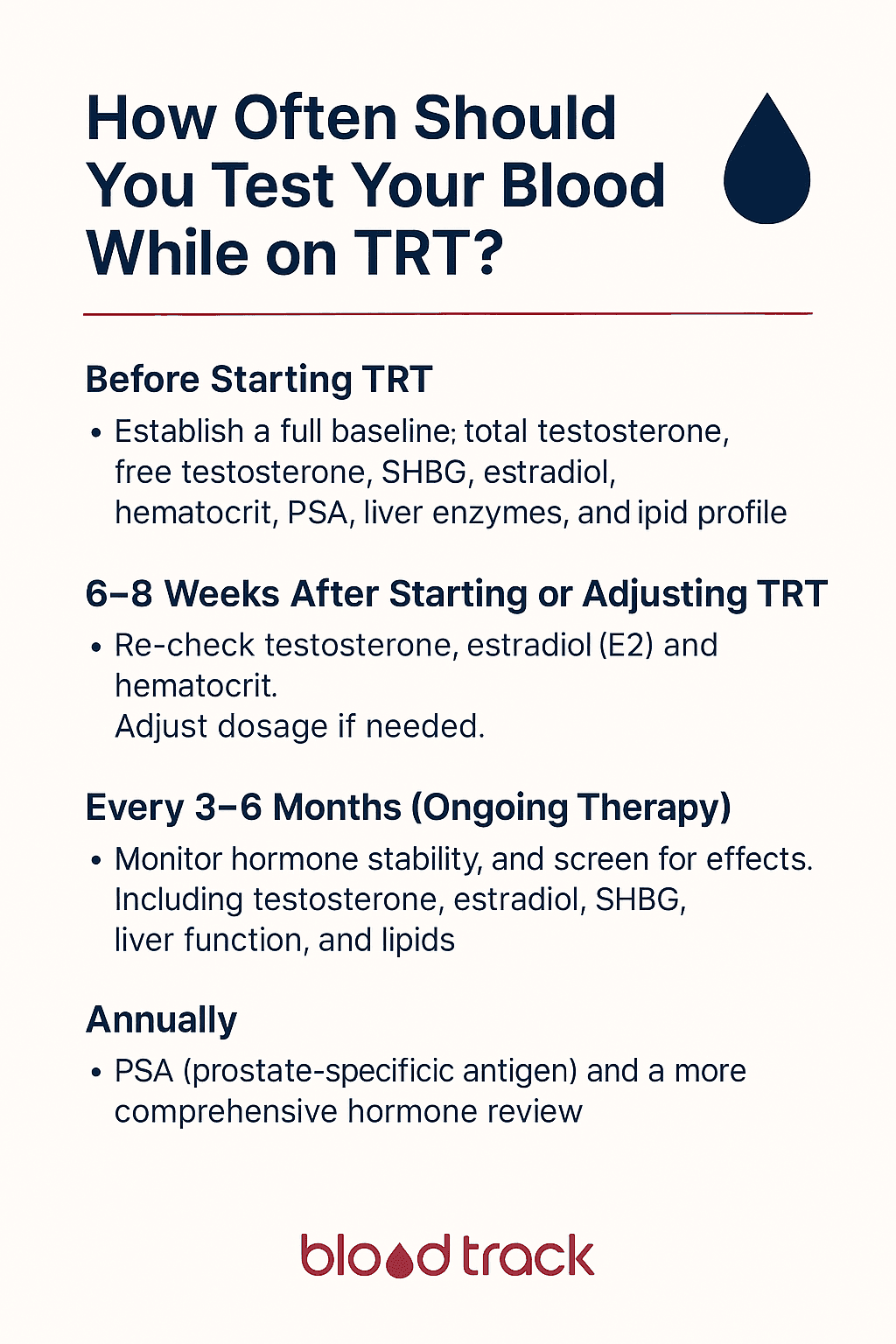🧪 How Often Should You Test Your Blood While on TRT?
When it comes to testosterone replacement therapy (TRT), knowledge is power — and your blood test results are your roadmap. But how often should you get tested?
Let’s break it down.
📆
TRT Blood Test Frequency Guide
🔹
Before Starting TRT
✅ Establish a full baseline: total testosterone, free testosterone, SHBG, estradiol, hematocrit, PSA, liver enzymes, and lipid profile.
🔹
6–8 Weeks After Starting or Adjusting TRT
🔍 Re-check testosterone, estradiol (E2), and hematocrit.
Adjust dosage if needed.
🔹
Every 3–6 Months (Ongoing Therapy)
Monitor hormone stability and screen for side effects.
Includes testosterone, estradiol, SHBG, liver function, and lipids.
🔹
Annually
PSA (prostate-specific antigen) and a more comprehensive hormone review.
🧠 Why Testing Matters
Without regular monitoring, you risk:
Over- or under-dosing testosterone
Estrogen imbalances (E2 too high or too low)
Elevated hematocrit (blood thickening)
Untracked side effects or suboptimal results
Testing keeps your TRT protocol safe, personalized, and effective.
🩸 BloodTrack Makes It Easy
Using BloodTrack, you can:
Upload and visualize blood results instantly
Track hormone trends over time
Compare lab results by date and protocol
Export reports for your doctor or clinic
Stay in control, wherever you are
No more digging through PDFs or spreadsheets.
✅ Ready to Stay on Track?
If you’re on TRT, blood testing isn’t optional — it’s essential.
Let BloodTrack do the heavy lifting so you can focus on feeling your best.
Start tracking now → https://www.bloodtrack.au
